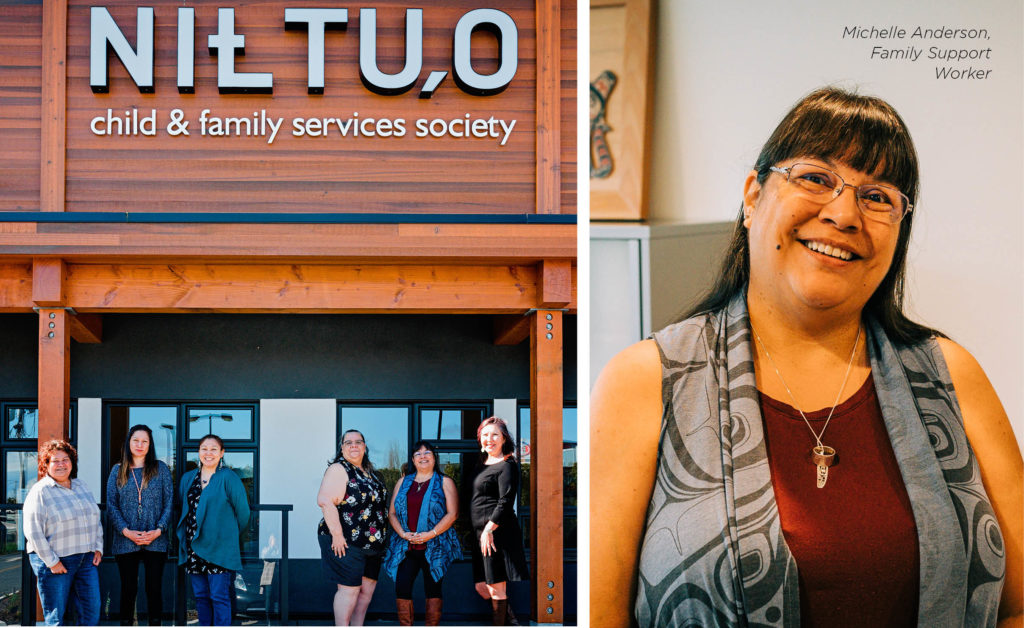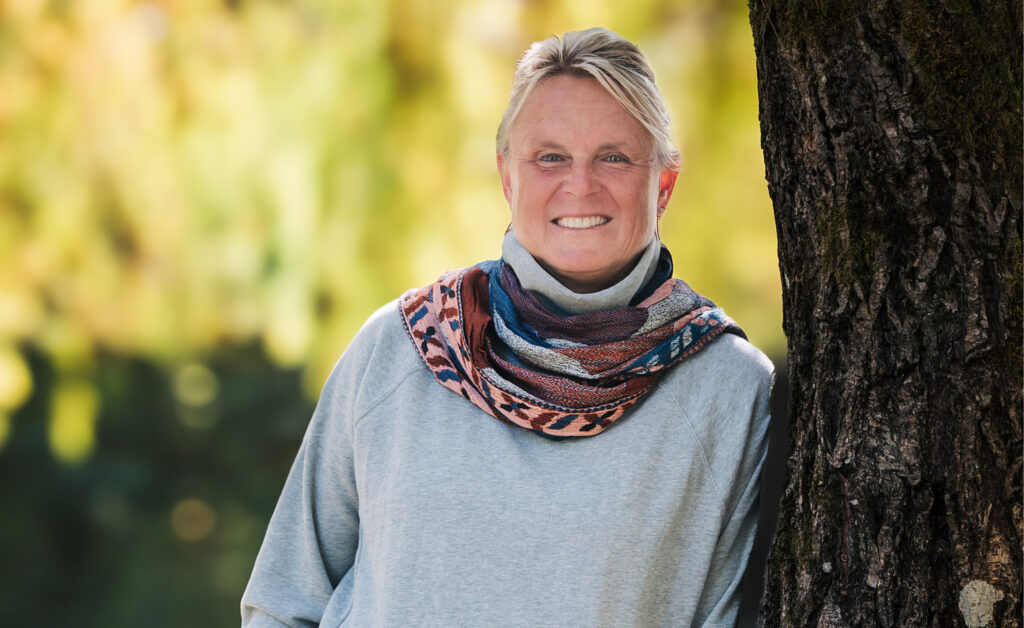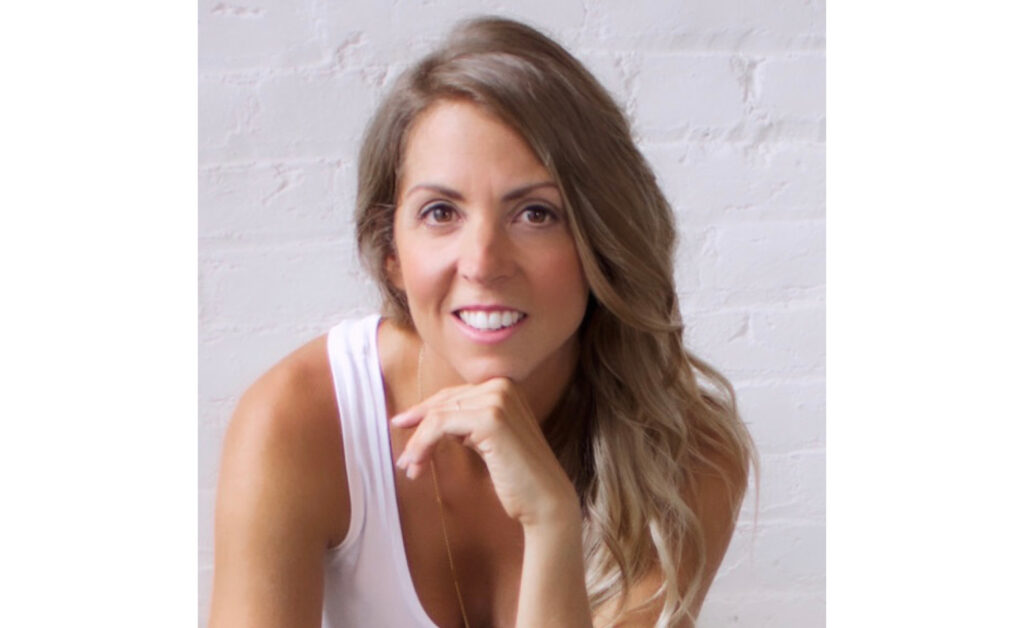by Deborah Rogers | photos by Janis Jean Photography –
I remember the empathetic family support worker who came to visit me when I had a three year old who wouldn’t eat anything and a three month old who would not sleep. I was exhausted and convinced I couldn’t cope. She listened to me, told me I was doing okay, and made small, practical suggestions. She was a voice of experience at a time when everything I was facing was brand new.
Every new parent needs a person like that to back them up with wise words and kindness. Meeting Michelle at the NIȽ TU,O Child and Family Services Society brought that memory back. For 18 years she has been that guiding hand for new families in the community. She’s part of an expert team that includes social workers, support workers and administrators.
We met on my tour of the NIȽ TU,O Centre. You will have driven past the beautiful building at Mount Newton Crossroad many times. They’ve been there for over 20 years, but three years ago extensive renovations gave the Centre a refreshed look and created spaces within that are culturally appropriate and rooted in an Indigenous approach to safety. But what do they do behind the magnificent basket weave frontage? NIȽ TU,O Child and Family Services Society supports the seven Coast Salish First Nations to manage their own child services. As a Delegated Aboriginal Agency (DAA) they offer both delegated and non-delegated services to their clients. These services are delegated from the Ministry of Child and Family Development and include: guardianship and care; voluntary support services; voluntary care or special needs agreements; recruitment, training and support for caregivers; youth agreements; and respite services. As well as these delegated services they offer a wide range of support services for families and youth.
Sometimes you just know when you meet someone for the first time, that they are a force for change. Katharina Stocker, Executive Director at NIȽ TU,O didn’t waste a moment of my time with her, ensuring I was fully briefed on the full range of challenges and solutions that the NIȽ TU,O Child and Family Services Society faces and presents. The Society was founded back in 1997 as a way to try to tackle the heartbreaking cycle of Indigenous children being removed from their families and placed with non-Indigenous carers. (In Canada, 52.2% of children in foster care are Indigenous, but account for only 7.7% of the child population.) Katharina explained how discrimination and poverty are the root cause of these shocking numbers. In 2016 the Canadian Human Rights Tribunal (CHRT) found that the federal government “discriminated against First Nations children on reserve through its design, management, control and funding of child welfare services. Among the discriminatory impacts were that the federal government did not provide adequate funding for prevention services, and it incentivized placing children in care by enabling reimbursement of certain costs.” At NIȽ TU,O they work with families, through a lens of Coast Salish teaching, to keep kids out of care and within their communities.
For the Indigenous population of Canada, the intergenerational trauma caused as a result of colonisation, including the impacts of the Indian Act, Residential Schools and Sixties Scoop, add a heavy load to the already difficult task of raising a family. Programs such as S.M.A.R.T., a 30-week play-based program for mothers raising toddlers, or Indigenous HIPPY (home instruction for parents of preschool youngsters), are designed to provide hands-on, resource-heavy support. With toys, books and craft supplies included, NIȽ TU,O is able to make a big difference in those vital early years, supporting bonding, literacy and joy in parenting. Having culturally appropriate materials with which to work, and a building that feels safe and welcoming, plays a big role, and one that has been Katharina’s goal to achieve.
Walking around the Centre I was struck by the considerate design featuring water, beach and forest elements. The family and play rooms are stocked with toys and books and beautiful Indigenous art features on many walls. The significant role of Elders in Indigenous society is something that NIȽ TU,O focuses on. Michelle’s “Triple P” program incorporates cultural and parenting skills learned from community Elders and grandparents, and there are spaces at the Centre designed to encourage the sharing of knowledge across the generations. A small outdoor space will allow for some practical activities like wood carving, and there’s a storeroom stocked with outdoor gear, used for youth activities like camping and canoeing.
Visiting NIȽ TU,O felt like a first step on a journey of learning for me, but this impressive organization has been teaching their community for years. They are reinforcing the values of mutual respect, love, patience and nurturing for their children and families, and ensuring future generations will have cultural knowledge, ambition and success.





Great to see the on ground work is being done and that you are nurturing our children, families, zElders and community. This will make positive change for our future generations and preserve our culture. Haaw.aa Haaw.aa Haaw.aa Katharina and your team.
::How encouraging it is to see how this suppotive agency has established and built up its presence in the community. We had an association with it many years ago when we had temporary care for my nephew, who is Metis, we are non-indigenous, through the outreach workers and gatherings at the facility, including a Healing Circle. Thank you for being there when your help was so crucially needed at that time for our nephew’s sake.